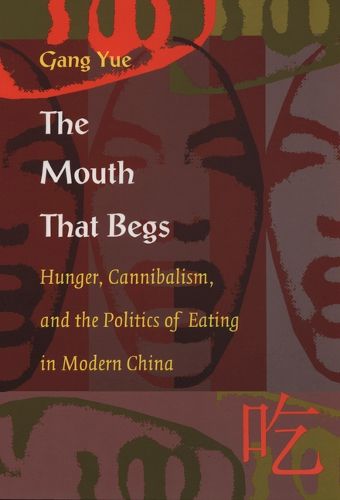Readings Newsletter
Become a Readings Member to make your shopping experience even easier.
Sign in or sign up for free!
You’re not far away from qualifying for FREE standard shipping within Australia
You’ve qualified for FREE standard shipping within Australia
The cart is loading…






The Chinese ideogram Chi is far richer in connotation than the equivalent English verb to eat . Chi can also be read as the mouth that begs for food and words . In China such fundamental acts as eating or refusing to eat can carry enormous symbolic weight. This book examines the 20th-century Chinese political experience as it is represented in literature through hunger, cooking, eating and cannibalizing. At the core of Gang Yue’s argument lies the premise that the discourse surrounding the most universal of basic human acts - eating - is a culturally specific one. The broad historical scope of this volume illustrates how widely applicable eating-related metaphors can be. For instance, Yue shows how cannibalism symbolizes old China under European colonization in the writing of Lu Xun. In Mo Yan’s 1992 novel Liquorland , however, cannibalism becomes the symbol of overindulgent consumerism. Yue considers other writers as well, such as Shen Congwen, Wang Ruowang, Lu Wenfu, Zhang Zianliang, Ah Cheng, Zheng Yi and Liu Zhenyun. A special section devoted to women writers includes a chapter on Xiao Hong, Wang Anyi and Li Ang, and another on the Chinese-American women writers Jade Snow Wong, Maxine Hong Kingston and Amy Tan. The Mouth That Begs should interest sinologists, literary critics, anthropologists, cultural studies scholars and all others curious about the semiotics of food.
$9.00 standard shipping within Australia
FREE standard shipping within Australia for orders over $100.00
Express & International shipping calculated at checkout
The Chinese ideogram Chi is far richer in connotation than the equivalent English verb to eat . Chi can also be read as the mouth that begs for food and words . In China such fundamental acts as eating or refusing to eat can carry enormous symbolic weight. This book examines the 20th-century Chinese political experience as it is represented in literature through hunger, cooking, eating and cannibalizing. At the core of Gang Yue’s argument lies the premise that the discourse surrounding the most universal of basic human acts - eating - is a culturally specific one. The broad historical scope of this volume illustrates how widely applicable eating-related metaphors can be. For instance, Yue shows how cannibalism symbolizes old China under European colonization in the writing of Lu Xun. In Mo Yan’s 1992 novel Liquorland , however, cannibalism becomes the symbol of overindulgent consumerism. Yue considers other writers as well, such as Shen Congwen, Wang Ruowang, Lu Wenfu, Zhang Zianliang, Ah Cheng, Zheng Yi and Liu Zhenyun. A special section devoted to women writers includes a chapter on Xiao Hong, Wang Anyi and Li Ang, and another on the Chinese-American women writers Jade Snow Wong, Maxine Hong Kingston and Amy Tan. The Mouth That Begs should interest sinologists, literary critics, anthropologists, cultural studies scholars and all others curious about the semiotics of food.